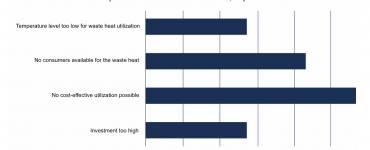Data Centres in Europe – Opportunities for Sustainable Digitalisation – Part II
Part II of a study commissioned by the eco Association for the Alliance for the Strengthening of Digital Infrastructures in Germany, undertaken by the Borderstep Institute and supported by the Vodafone Institute.
Including best practice examples from data centres in Portugal, Spain, Sweden and Germany to show which locations are already saving large amounts of energy today using the innovative technologies and applications available on the market.
Are European data centres ready for the climate targets of the EU Green Deal, to strengthen climate and environmental protection through digitalisation?
The new study, with best practices in the field of energy-efficient data centres, formulates technological development potentials as well as policy recommendations.
DIGITALISATION NEEDS POWERFUL DIGITAL INFRASTRUCTURES in the form of data centres, edge computing and cloud services. The ecosystem of digital infrastructures requires energy for the transfer, storage and processing of data. European data centres form the backbone of digitalisation and are already among the most energy-efficient in the world. Nevertheless, further efficiency potentials can be exploited in the future and thus even more energy can be saved. Data centres are in themselves not CO2 emitters, but depend on the energy mix available in the respective countries. In Germany in particular, an accelerated energy transition, which further optimises the energy mix available, can help to reduce CO2 emissions even more rapidly.
These are the central findings of the new study “Data Centres in Europe – Opportunities for Sustainable Digitalisation – Part II” by the Alliance for the Strengthening of Digital Infrastructures in Germany, founded under the umbrella of eco – Association of the Internet Industry, jointly developed with the Borderstep Institute and with the support of the Vodafone Institute.
The study uses various best practice examples to show which locations are already saving large amounts of energy today using the innovative technologies and applications available on the market. These include data centres in Portugal, Spain, Sweden and Germany.

Alliance for the Strengthening of Digital Infrastructures
Political Demands for the Strengthening of Digital Infrastructures
Create the framework conditions for achieving the EU climate targets
For many years now, operators of digital infrastructures have been committed to greater sustainability, which is why data centres in Germany and Europe are, in international comparison, already among the most energy-efficient in the world. Instead of concentrating on purely national certification approaches in the field of energy efficiency, policy-makers at European level must develop common standards and certification models, and do so in close cooperation with the industry. The GAIA-X project is a good platform for such cooperation between providers, users, and political decision-makers, and should be used to develop and establish European standards and criteria regarding the sustainability of data centres.
Make sustainable use of waste heat from data centres
Waste heat from data centres represents a valuable energy resource. However, there are currently too few possibilities to channel the waste heat into a systematic and efficient secondary use, e.g. feeding into local or district heating networks or vertical farming. In order to harness this potential sustainably, politics must promote and support waste heat recovery in a targeted manner. This could be achieved by, among other things, purchase obligations for heating network operators. In addition, the technical systems for waste heat recovery must be improved and the possibilities for its use in both urban and rural areas must be further developed.
Develop a cross-ministry approach and take different business models into consideration
Politics must ensure a coordinated approach across ministries and departments and together with the providers of digital infrastructures, so that politically-agreed goals are accepted and can be achieved. This requires a coordinated approach to strengthen the business location, secure and develop skilled workers, and promote research on energy and environmental policy issues. Sustainable digitalisation must be in harmony with the performance and competitiveness of Germany and Europe as a digital location. In order to maintain the competitiveness of digital infrastructures in the face of ambitious energy and climate policy targets, and to stimulate innovation, their infrastructure characteristics and business models, as well as the needs of business and private users, must be taken into account in the development of future measures.
See the Alliance's complete set of Political Demands for the Strengthening of Digital Infrastructures.



